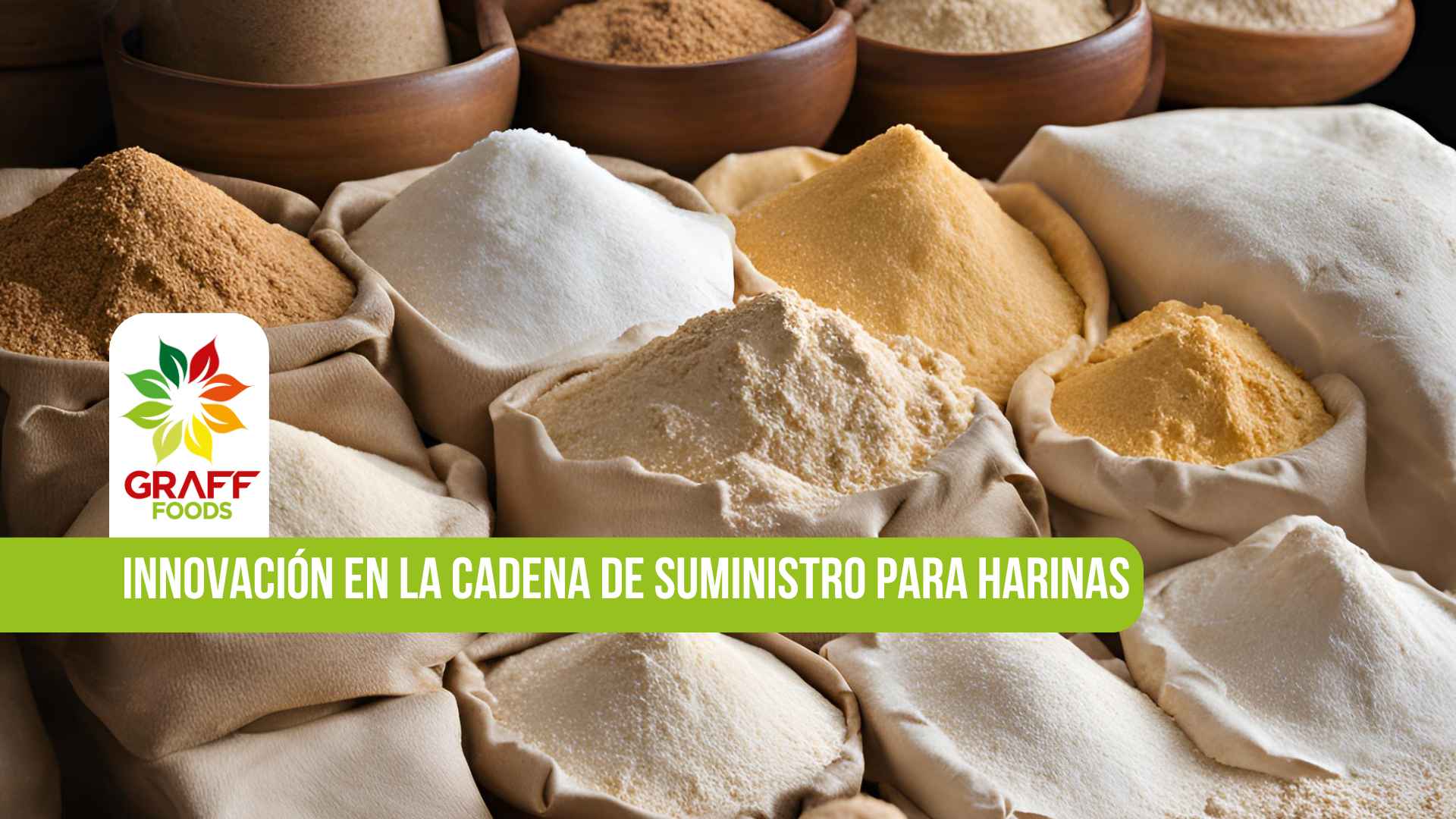Innovation in the Flour Supply Chain: Technology and Trends

Have you ever wondered how corn flour and wheat flour make it to your business while maintaining freshness and quality at every stage? Innovations in the flour supply chain have transformed the way this essential food industry product is produced, stored, and distributed. In this article, we’ll explore new technologies in flour distribution and flour value chain that are revolutionizing the sector. These trends optimize costs and delivery times, ensuring that flour reaches end consumers with its desired characteristics and properties intact.
What Drives Innovation in the Flour Supply Chain?

The rising demand for top-quality flour products has pushed distributors to seek innovative solutions to enhance efficiency and sustainability. For any flour importer or distributor, having a robust, flexible, and efficient supply chain is critical to staying competitive in the increasingly global market.
Principales innovaciones tecnológicas en la cadena de suministro de harinas
The Innovation in the flour supply chain se centra en dos pilares: el uso de tecnología avanzada para el control de calidad y la eficiencia logística. A continuación, se presentan algunas de las tecnologías más destacadas:
Key Technological Innovations in the Flour Supply Chain
Traceability is the ability to track each batch of flour throughout every stage of the supply chain, from grain selection at the source to final delivery. This system allows real-time monitoring of every process, record, and product location, ensuring compliance with quality and food safety standards at every step. With this technology, producers and distributors can not only accurately track each batch but also quickly identify and resolve any issues, minimizing losses and guaranteeing a safe and reliable supply.
IoT Sensors for Environmental Condition Monitoring
IoT (Internet of Things) sensors are widely used to maintain optimal storage and transportation conditions for flour. These sensors measure factors such as humidity, temperature, and vibration, helping prevent product deterioration. Thanks to this technology, corn and wheat flour arrive in perfect condition, significantly reducing waste and, in turn, production costs—a constant priority.
Advanced Logistics Management Software
Supply chain management software enables effective coordination of distribution and inventory, ensuring orders are fulfilled on time. These platforms also offer predictive analytics, which facilitates planning and helps flour importers make informed decisions based on demand.
Sustainability as a Driver of Improvement in the Flour Value Chain
Sustainability is a priority for many companies in the food sector, and improvements in the flour value chain focus on reducing environmental impact. Here are some sustainable practices being implemented in the industry:
Efficient Transportation and Emission Reduction
Optimizing routes and using more efficient cargo vehicles contribute to more environmentally friendly flour distribution. Additionally, solutions such as electric trucks for short- and medium-haul routes are being developed to reduce carbon emissions.
Eco-Friendly Packaging and Waste Reduction
Many suppliers are switching from traditional packaging to recyclable or biodegradable options, aiming to minimize environmental impact. This allows wholesalers to offer a more sustainable product that meets the demands of increasingly eco-conscious consumers.

New Trends in Flour Distribution Logistics
The new technologies in flour distribution are designed to optimize every stage of the process, from storage to final delivery. Below are two of the most relevant trends:
Just-In-Time (JIT) Distribution

The JIT strategy ensures that flour is available exactly when it’s needed, eliminating the need for large inventories and reducing storage costs. This system also allows for a quick response to changes in demand, avoiding overproduction and waste.
Blockchain in the Flour Supply Chain
Blockchain technology ensures transparency at every stage of the supply chain. Blockchain is a digital ledger system where data is organized into securely linked blocks that, once stored, cannot be altered. This allows all relevant information about the flour—from its origin to processing details—to be recorded immutably and made accessible to all participants. For wholesale customers, blockchain provides reliable and verifiable data on product quality and origin.
Benefits of Innovation in the Flour Supply Chain for Wholesale Customers
For distributors and wholesale customers, these innovations in the flour supply chain translate into tangible advantages, including:
- Consistent Quality:Advanced control and traceability processes ensure a consistent product.
- Cost Reduction:Optimized logistics and storage contribute to higher profitability.
- Transparency and Trust: Thanks to blockchain and traceability, customers can verify every stage of the process.
The Future of the Flour Supply Chain
The Innovation in the flour supply chain continues to evolve with new technologies that optimize quality, transparency, and efficiency in the sector. For Graffoods customers, these innovations guarantee reliable and consistent products. Visit our website to learn more about our corn and wheat flours and establish a commercial partnership that will boost your business with certifications and international standards.

